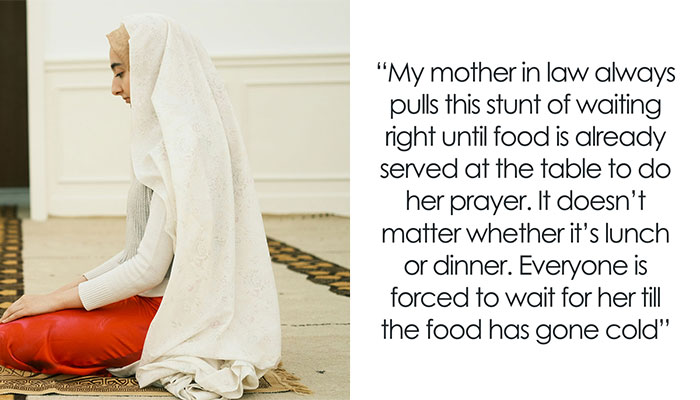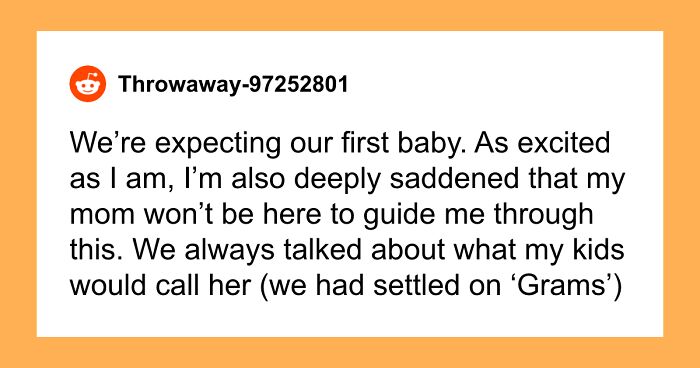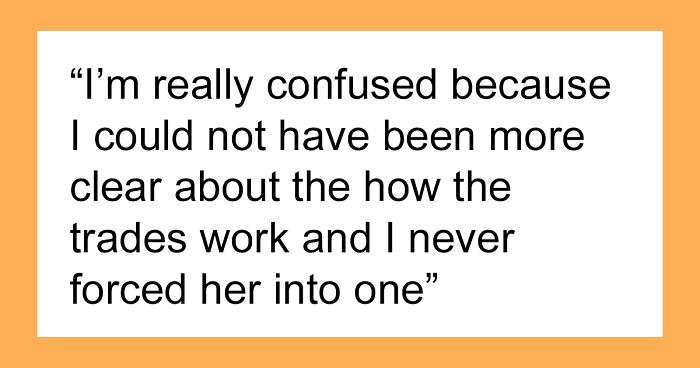I’m sure you’ve noticed that the German language is full of great words. It’s an elegant system that allows to convey even complex concepts in one word. Take schadenfreude, for example. This expression describes the pleasure or satisfaction when someone else goes through a failure, suffering, or humiliation. Such a spark of delight might appear when a rival doesn’t get the promotion they expected or while watching fail compilation videos. Feeling this way occasionally doesn’t make people bad. However, the everything in moderation rule applies here heavily.
For your schadenfreude fix, we have a list full of hilarious fails and more, courtesy of the ‘Faillgram’ Instagram account. Scroll down for some harmless fun and don’t forget to upvote the ones that made you feel bad for giggling.
While you're at it, make sure to check out a conversation with a professor of differential psychology and psychological diagnostics and co-author of Schadenfreude as Social-Functional Dominance Regulator, Jens Lange, who kindly agreed to talk with us more about the phenomenon of schadenfreude.
This post may include affiliate links.
If you ever felt guilty about feeling satisfaction when someone else messed up, scientists say that you don’t have to beat yourself up too much about it. Schadenfreude is a process that became deeply ingrained in our brains due to millions of years of evolution.
Humans are extremely social creatures that are very aware of other people, their relationships, and their place in the hierarchy of social status. Even subconsciously, we want to be respected and liked, which pushes us to find ways to improve our place in society.
The retirement age was pegged at 65 because of physical decline. Not mental. Folks older than that run things because people keep voting for them
It can feel good to raise our social status, whereas having a low ranking in the hierarchy can feel stressful and even negatively affect a person's well-being.
Humans can improve their social standing in various ways, like being highly athletic, succeeding in their careers, having the latest technology, or buying the biggest house.
Another way to rise in social ranking that is associated with the previously mentioned schadenfreude is to lower other people’s social status. That’s why when we see other people mess up, we can feel a spark of delight, which the German word is all about.
Professor of differential psychology and psychological diagnostics and co-author of Schadenfreude as Social-Functional Dominance Regulator, Jens Lange, says, "When people feel down, laughing about others' misfortunes makes them feel better."
It also helps put dominant people in their place. "Schadenfreude is more strongly experienced when misfortunes happen to people who initially attained higher social rank via dominant means (i.e., aggressively putting others in their place by inducing fear). When such an initially dominant person experiences a misfortune, publicly laughing about that person reduces their threat-potential and thereby reduces their social rank in the eyes of others," Lange further explains.
"Hence, schadenfreude can be useful for people to experience. Whether these functions would make the schadenfroh person a "bad" person is up for public debate. My personal opinion is "no." Depending on your (philosophical) position, you may disagree."
That's why I quit playing Bobbing for Porcupines. The iodine costs were eating up the profits.
Some people may even use it as a coping mechanism, as it can provide control and dominance in troubling times.
Schadenfreude also activates the brain's reward centers, which means that when we see someone fail, we get a hit of dopamine that can keep us coming back for more. “When we get hooked into our limbic system, there is an addictive quality to it,” Hokemeyer says. “We become hyperactive, our prefrontal cortex shuts down, and we’re acting on our very primitive emotions.”
When this happens, it can pose a threat to our mental health. Constantly getting a dopamine hit from other’s misfortune can hinder our ability to sympathize with others, which might cause harm to our emotional intelligence, healthy relationships, personal goals, and aspirations. It can make people feel less connected, which has a severe impact on their mental and physical health.
Social media is linked to a higher use of this coping strategy. The “one-upping” that is constantly going on on social media platforms is making individuals more reliant on the feeling of schadenfreude to boost their confidence and self-worth.
"Social media provides people with numerous opportunities for social comparisons, of which most will probably be upward because most people only post amazing things about themselves," explains Lange. "Such upward comparisons may, in the long run, reduce people's self-esteem. Then, if they at some point encounter someone who is worse off, then schadenfreude could become more likely, be it on social media or in real life."
Occasionally partaking in schadenfreude doesn’t make a person bad but there are healthier ways to cope that result in more sustainable and long-lasting benefits. Neuropsychologist Judy Ho, PhD, suggests sharing such feelings with a trustworthy person. "There's a self-fulfilling prophecy here where you think you're the only person who does this and start to feel ashamed, so you isolate and do more of it," Ho says. "Open up the conversation. This is a universal thing."
Additionally, Ho advises taking social media breaks and practicing gratitude and mindfulness. Deriving joy in healthier ways can be as simple as noting what you’re grateful for or making a list of things you enjoy. When schadenfreude tries to come out, pull out a compilation of activities that spark joy to counteract it.
She's even dropped her fäg. This picture just screams Britain.
On the other hand, Lange believes that we don't necessarily need to combat schadenfreude since it serves important social functions.
"If, however, people want to combat it, then one strategy would be to increase one's self-esteem. A strategy that worked in previous research is self-affirmation. In self-affirmation, people affirm personal values that they hold strongly or recall their personal strength. Doing so increases people's self-esteem and therefore dampens emotional experiences that aim to increase people's self-esteem (e.g., schadenfreude)," he concludes.
A few days later he has a heart attack. Guess who is in the new will....
Yea I can believe that!! now go back to sleep; it's Saturday anyway!!
The professional one looks too good to eat. At least the amateur one you'll be putting it out of its misery
Cross out that apostrophe and mark them down!! It's the only way they'll learn.
If you only use 1 foot, I'd like to see you drive a standard transmission.
That makes no sense at all. You do realize you aren't REQUIRED to come to BP and read articles, right?
Load More Replies...That makes no sense at all. You do realize you aren't REQUIRED to come to BP and read articles, right?
Load More Replies...
 Dark Mode
Dark Mode 

 No fees, cancel anytime
No fees, cancel anytime 
































































































































